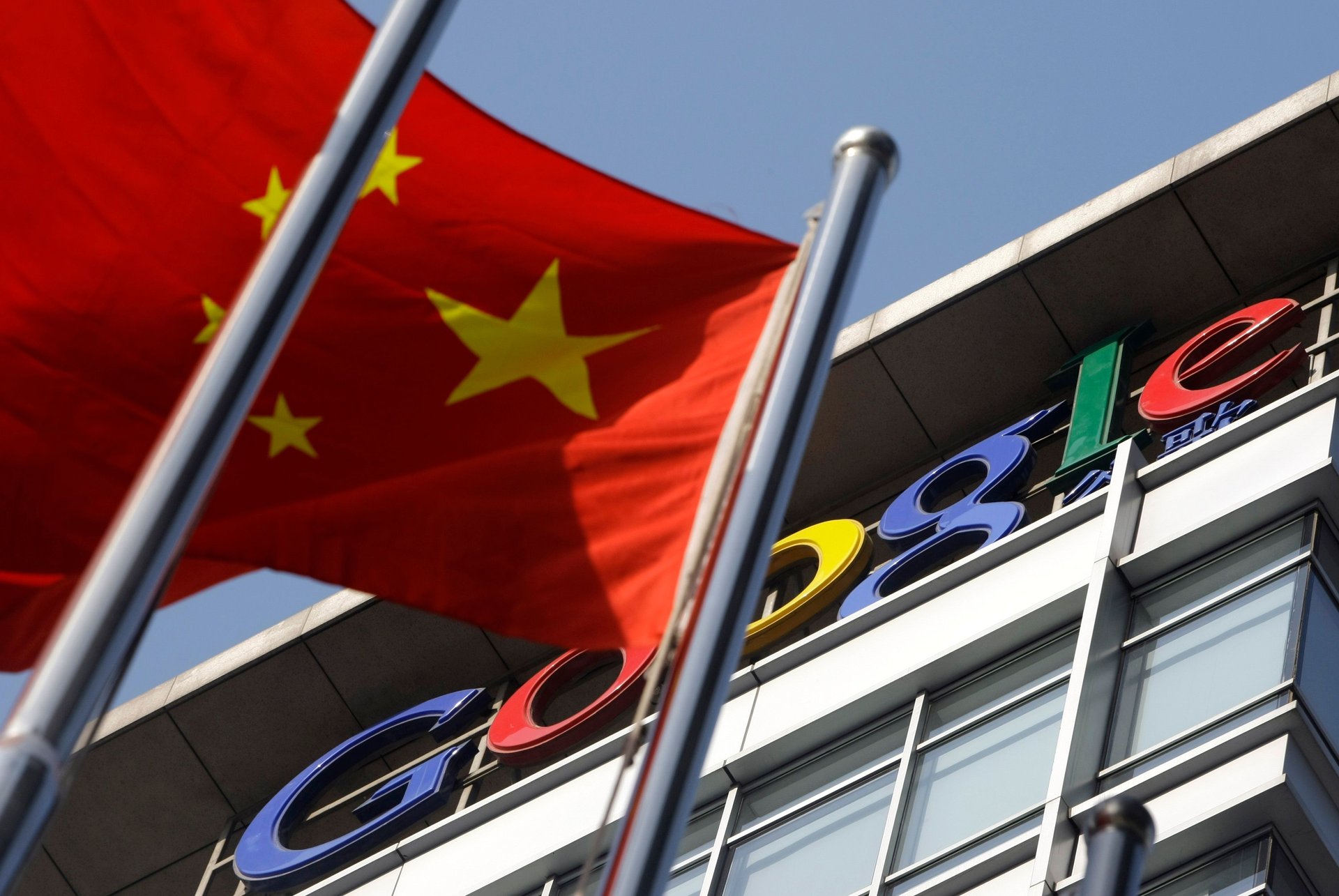Google’s search engine may be returning to China, as censored as when it left
In 2010, Google stopped censoring its search engines in China. It pulled its services there and redirected users in the country to the uncensored Hong Kong version of the platform. Soon after, access to Google was blocked to most in the country.


In 2010, Google stopped censoring its search engines in China. It pulled its services there and redirected users in the country to the uncensored Hong Kong version of the platform. Soon after, access to Google was blocked to most in the country.
Even though censorship and surveillance have only become more entrenched in Chinese society since, Google is plotting its return to the nation that boasts more than 750 million internet users.
The company is developing a version of its search engine in China that will comply with the strict censorship laws there, The Intercept reported (paywall) today (Aug. 1), based on information from internal Google documents and people familiar with the plans. A custom Android app will identify and filter websites that are blocked by China’s “Great Firewall,” which blocks access to information on the internet including topics that president Xi Jinping’s communist party finds politically sensitive.
Banned sites on the custom Google Search will be removed from the first page of results, and a message will display that states “some results may have been removed due to statutory requirements,” the publication reported. Certain words and phrases will also be blacklisted so that no results will be shown when people search for them.
The service has reportedly been demonstrated to the Chinese government. The final version is expected to launch in the coming weeks, after Google receives Beijing approval and is satisfied that the search service can top that of China’s current search-engine leader, Baidu.
“We provide a number of mobile apps in China, such as Google Translate and Files Go, help Chinese developers, and have made significant investments in Chinese companies like JD.com,” a Google spokesperson told Quartz. “But we don’t comment on speculation about future plans.”
Google CEO Sundar Pichai has reportedly led Google’s quest to conquer China, which is one of the last big frontiers for the tech giant. In 2016, Pichai said he would like to return to the country and “every corner of the world.” The company has since announced an artificial-intelligence center (paywall) in Beijing and launched a file-management tool, among other efforts to reach Chinese consumers.